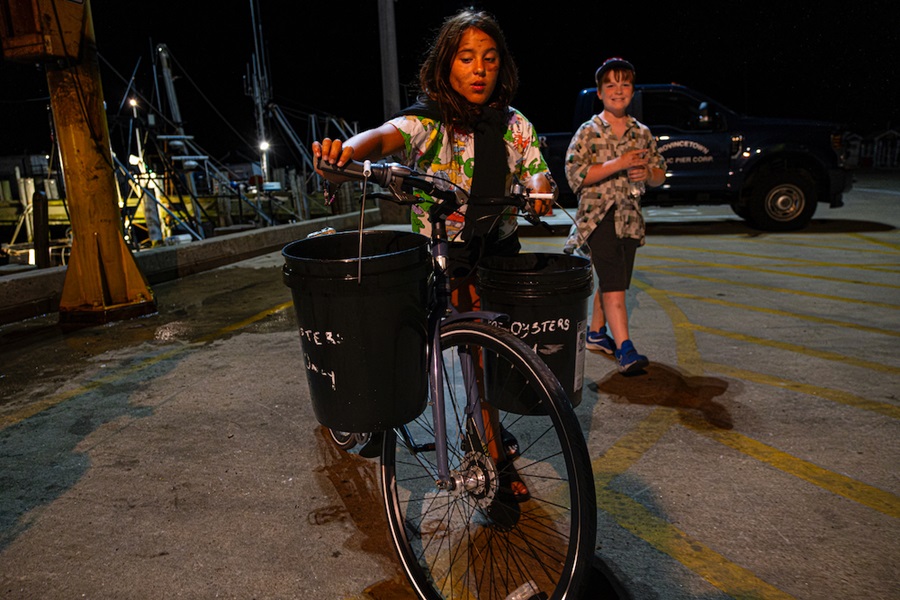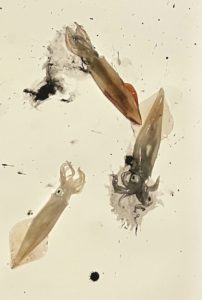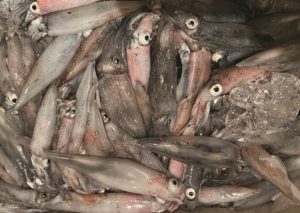PROVINCETOWN — It’s 7:30 p.m. and the sky is changing from navy blue to black. It’s squidding time.
Squidding is a tradition passed down through generations, says Maxine Meads-Stojiljkovic, the mother of 10-year-old Mila Stojiljkovic, who is organizing friends to go to MacMillan Pier. Maxine knows about traditions here: generations of her family have lived in Provincetown since the late 1800s. “Squidding keeps alive the spirits of those who have died,” she tells us.
For kids here, squidding is serious business. It’s an adventure that gives them responsibility and makes them feel trusted and independent.
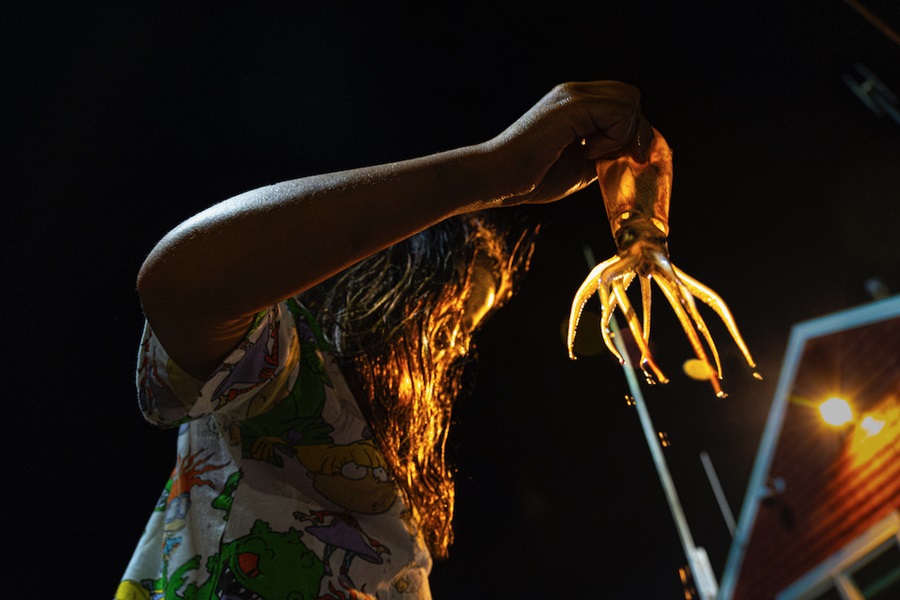
“They let us go at 7 or 8 p.m. because it’s not too, too late,” says Mila. “Grownups are strict. When you squid, they keep on saying what you’re doing wrong. I’d rather go with kids because kids are fun, and we fool around.” But she knows the parents have their worries. “Parents want us to behave, because they don’t want us falling off,” she says. “No one I know has ever fallen off. We make sure we’re safe.”
On this trip, Mila is bringing two friends who will be squidding for the first time: Olivia Francis, 10, and this reporter, 11. Another 10-year-old, Victor John DePoalo, a regular, joins the group at Mila’s house. Mila’s dad, Milos, who is an assistant harbormaster, teaches us to hold our fishing poles at the bottom, with a relaxed hand, and instructs us to keep them by our sides while walking, to avoid poking anyone in the eye.
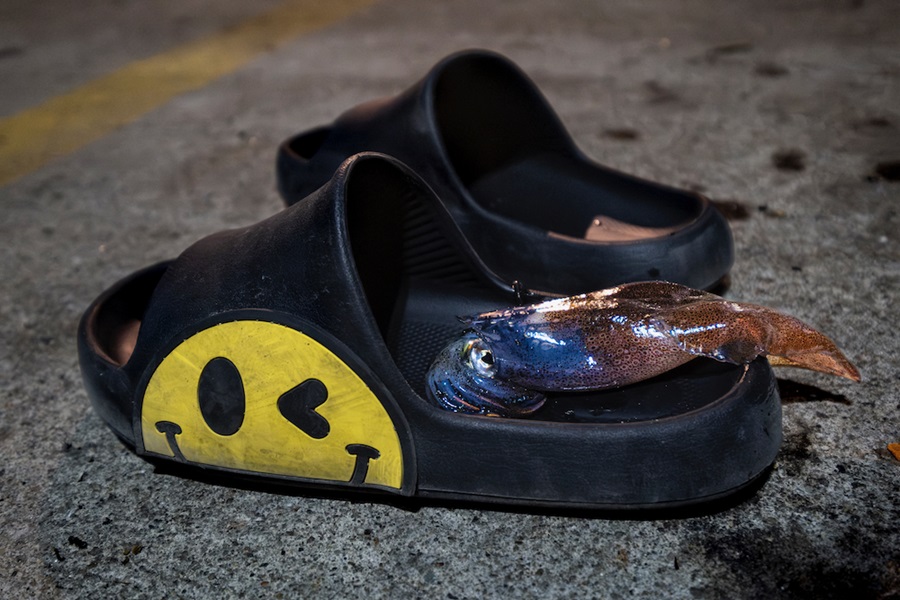
As we leave Mila’s house for the pier, Victor John races ahead on his electric scooter. He has a huge grin on his face. “See you there!” he yells as he speeds down Commercial Street and disappears into the crowd.
Ten minutes later, as we round the corner to the pier, we see an ambulance. Then we see Victor John sitting on the sidewalk with his scooter thrown aside on the pavement. He is holding his arm and braving pain as EMTs ask him questions. As they help him into the ambulance, his dad arrives. We debate whether to go squidding as planned. A police officer urges us to go ahead and enjoy our squidding. “Victor John would definitely want you to still have fun,” he says.
So, we do.
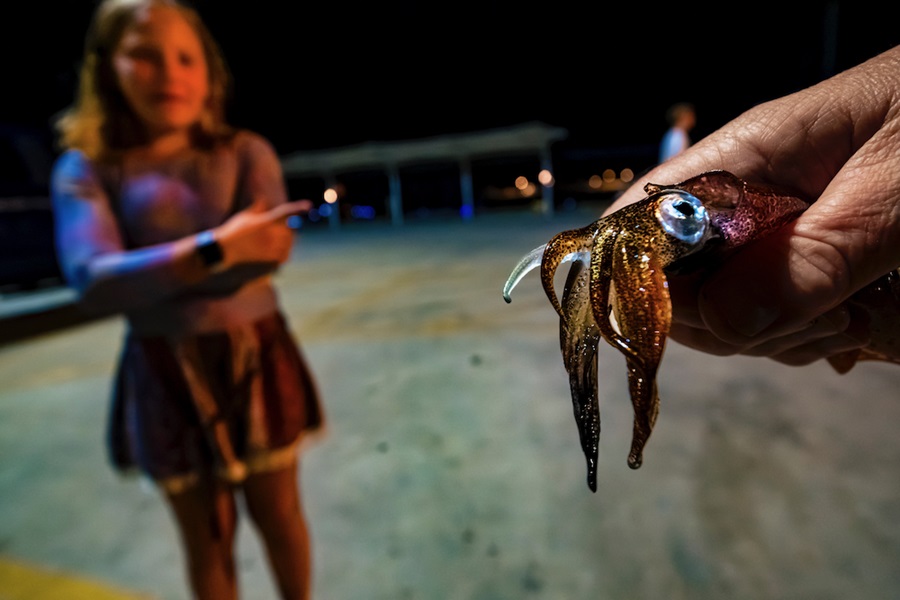
The action begins at sunset, when the squid use their giant eyes to find bioluminescent trails created by their prey in the water. Squid are attracted to light, so catching them starts with finding a spot on the pier where the streetlights reach the water. People of all ages line the edge of the pavement. They rest their feet on the ledge below, hunch over fishing lines dangling in the water, and search for little blobs — the squid.
The squidders keep still, except their arms, which move up and down as they slowly bob the fishing rods to convince the squid that the bait, a pink plastic minnow with a ring of spikes, is alive.
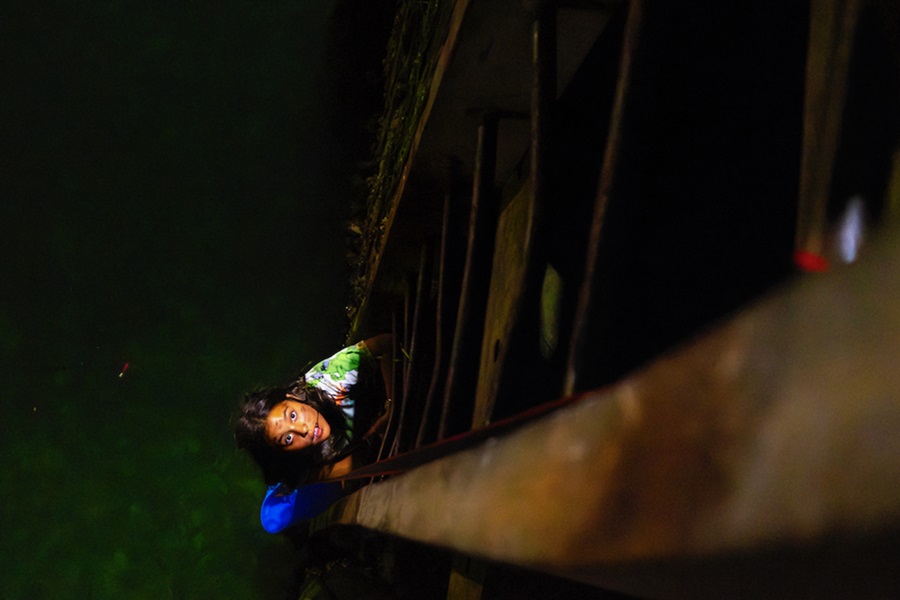
The beginners find a spot between a squidding expert and a less experienced mother and son. The quiet is now broken by excited voices, but that doesn’t seem to bother anyone. After many unsuccessful casts, Mila feels her line grow heavy and quickly reels it in. Her friends abandon their lines and rush over, cheering. As the squid surfaces, it spreads its tentacles, sprays ink, and makes sneeze-like gasping sounds. Mila confidently unhooks it, then realizes that the Ziploc bag meant to hold our squid is still in Victor John’s pocket.
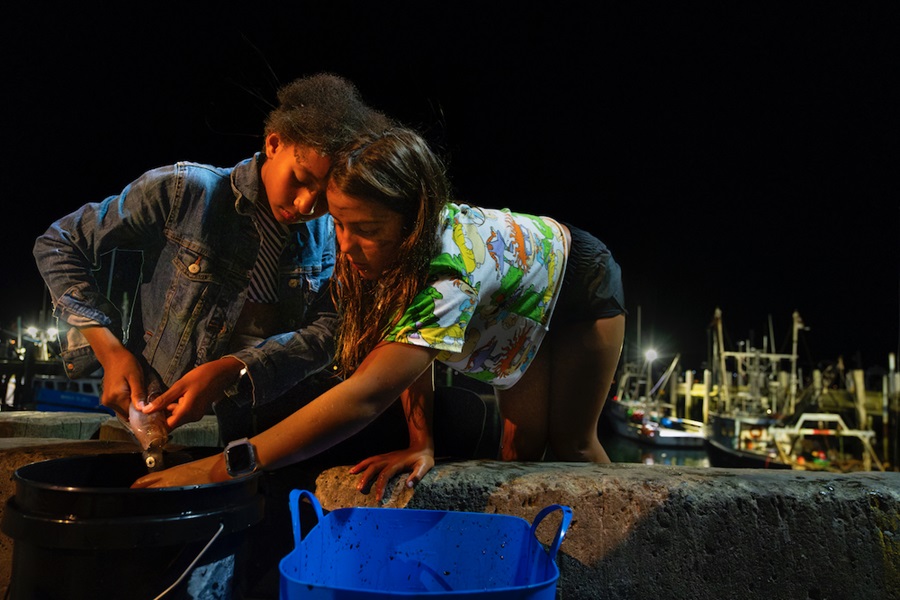
Mila pauses before rushing off the ledge and removing her shoes. She puts the squid in her left slide, and we use her sandals to hold the night’s catch until Olivia’s brother finally arrives with buckets. Mila spends the rest of the night squidding barefoot.
We marvel at the shimmering dots of squid skin, which continue moving after the squid dies. We are surprised by the size and intensity of the squid’s eyes, which look like glow-in-the-dark stars. As it gasps air instead of water, turns from purple to white, and stops moving, we apologize to the squid.
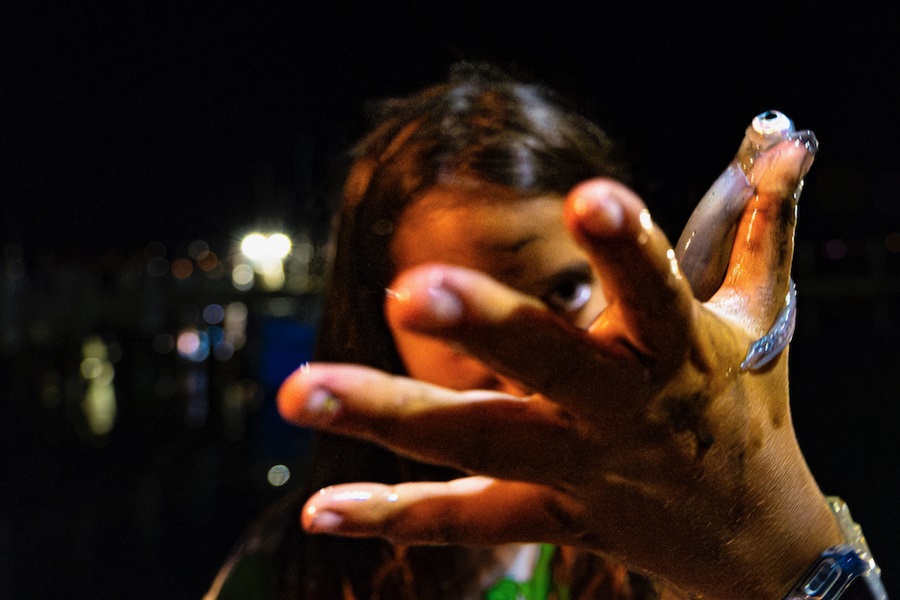
“When you catch your first squid you feel such victory, like you won a prize,” Olivia says a few days later. “Every time you want to catch another, you have to restart the process. It teaches you how to be calm. If you’re not calm, you could lose the squid or get inked.” Squid have beaks and it will hurt if you’re bitten.
Mila teaches us to squirt the squid ink into a plastic bottle so that we can use it for art projects. And as we “milk” the squid, she paints her face with ink.
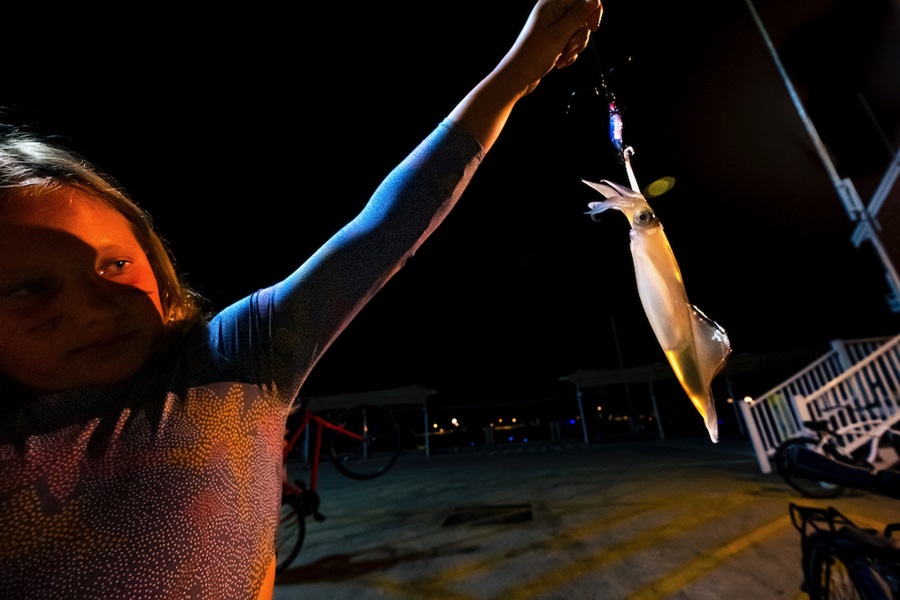
Around 11 p.m. they close the pier, and as our night of squidding comes to an end, we realize we’re hungry. Taking turns balancing two buckets of squid that hang from the handlebars of Mila’s bike, we head to Twisted for pizza and ice cream. Then, Olivia walks home to the West End and Mila and I head east to hers, where we return the squidding gear and divide our catch into bags, saving some for Victor John. We decide I will take the squid ink to my house for an art project.
It’s nearly midnight when we hug goodbye. Mila goes inside her house, and I walk back to mine.
